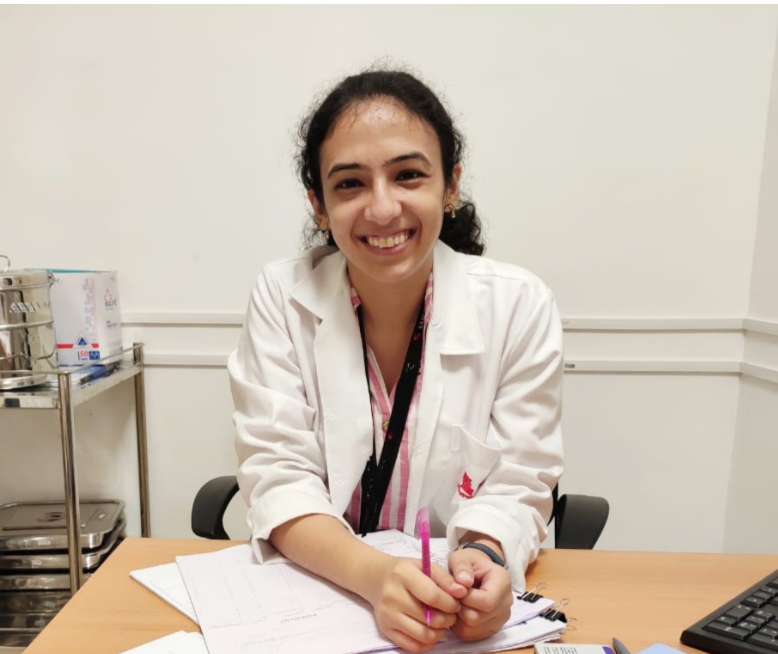What is menopause?
When a woman has not menstruated for 12 continuous months, she reaches menopause. A woman cannot become pregnant naturally after this termination of her menstrual cycles.
At what age does menopause generally occur?
In Indian women, menopause occurs between 42-52 years of age. The menopause transition can span from 4-7 years, varying for every woman.
In certain cases, there is a chance of premature or early menopause too. Women having complicated conditions like PCOS, fibroids and endometriosis or habits like excessive smoking and drinking can cause premature menopause. Menopause and weight gain are also interconnected as overweight or obese women are more likely to experience early menopause.
Why does menopause happen?
It is necessary to understand why a woman experiences menopause and what is the cause of such drastic physical and psychological changes in the body.
A woman’s ovaries are continually ageing as she grows older. At a certain age, the eggs in the woman’s ovaries exhaust, resulting in menopause. The two sex hormones, estrogen and progesterone are crucial for the female sexual reproductive system. At menopause, there is a sudden decline in the production of these hormones, resulting in various changes within the body.
Different stages of menopause
Perimenopause: Perimenopause, also known as the menopause transition, spans between 4-7 years for women. During this period, women start experiencing irregular menstrual periods, along with various other symptoms.
Menopause: Menopause is the absence of menstrual periods for one full year.
Postmenopause: The years after reaching menopause come under the post menopause stage.
What are the symptoms of menopause?
Most of the physical and psychological symptoms occur in the perimenopausal stage, which can last from 4-7 years. As mentioned earlier, a sudden drop in the female sex hormones is a cause of the multiple bodily changes that a woman experiences.
Different women will experience a combination of perimenopausal symptoms. No two women would go through the same episodes. Some women may experience these signs at 40 years while some may get the symptoms of menopause at 52 years; it all depends on various factors.
Below are some signs that can help you identify if you are nearing menopause:
- Changes in the menstrual cycle: One of the early signs of identifying menopause is an irregular menstrual cycle. Women will start getting less frequent periods. There can be various extremes, either scanty bleeding or spotting or heavy bleeding.
Other common physical side effects of menopause experienced by women are:
- Hot flashes: Hot flashes symptoms refer to undergoing a sudden feeling of intense heat that is not caused by external sources.
- Night sweats
- Flushing: Reddening of the face and upper body is called flushing
- Vaginal atrophy
- Increased urination
- Dry skin, hair and nails
- Decreased libido
- Thinning of hair
- Increased hair growth on areas like face, chin, neck
- Sore breasts
- Painful or stiff joints
Apart from this, the drop in the hormones impacts the mental health of women too. Many women may experience some of the following changes:
- Anxiety
- Depression
- Irritability
- Difficulty to concentrate
- Memory loss
How does one recognize that they are experiencing menopause?
If you have missed your periods for a year, it is best to visit your doctor to get a few tests done. The tests conducted to measure the levels of Follicle-stimulating Hormone (FSH), Luteinizing Hormone (LH), estrogen would help in confirming the diagnosis of menopause.
How can one prepare oneself for menopause?
During menopause, the woman’s body undergoes sudden drastic and harsh physical and psychological changes. The declining hormones also affect some of the main parts of the body, especially the bones and the heart. However with awareness, appropriate and timely medical intervention and diet and lifestyle changes, women can take care of themselves.
Awareness - The first step to cope with these changes is awareness about the different stages of menopause and its effects. Women should also be aware of the various symptoms of menopause-related complications and seek medical help at the earliest to prevent them.
Communication and medical help - Secondly, women need to be encouraged to communicate and seek medical help whenever they experience any changes in their bodies. Timely interventions would help in reducing the impact of these symptoms. Menopausal women may also join support groups for further help and assurance.
Diet and Lifestyle - Lastly, a balanced diet, healthy lifestyle and exercise will also help the body cope with these hard changes as well as prevent long term complications. Certain menopause supplements can help stabilize the hormone levels, thus ensuring no sudden decrease in the hormones. Other supplements like Calcium and Vitamin D can help prevent thinning of the bones and as a result, rule out the risk of fractures.
Bottom line
Every woman will experience menopause in their lives, sooner or later. The menopause symptoms may appear burdensome but with appropriate menopause treatment, diet and lifestyle adjustments, women will be able to adapt to this phase of their lives with ease and fewer complications!
Disclaimer : This information is provided for educational purposes and should not be construed as medical advice. Please consult with your healthcare practitioners before undertaking any changes in your diet or adding supplements.
ProactiveForHer is a digital clinic for women, offering accessible, personalized, and confidential health-care solutions. We offer products and services for out-patient health concerns of Indian women, across their lifetime - from puberty to pregnancy to menopause. To know more on the sexual and reproductive health of women, visit https://www.proactiveforher.com/

